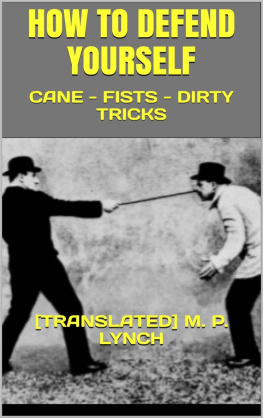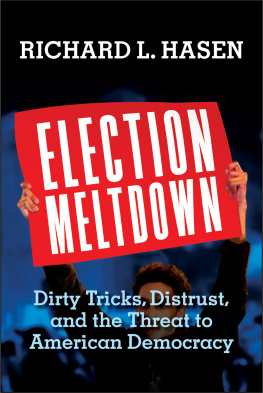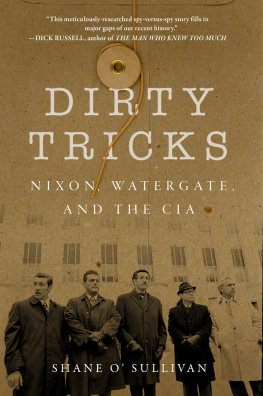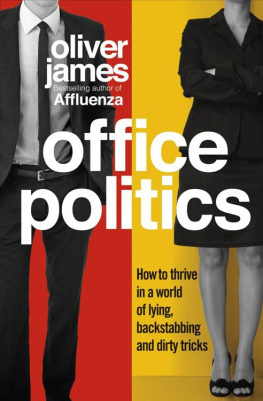Table of Contents
Copyright 2005 by Colin Gautrey and Mike Phipps
The right of Colin Gautrey and Mike Phipps to be identified as the authors of this book has been asserted in accordance with the Copyright, Designs and Patents Act 1988
First published 2005 by Capstone Publishing Limited (a Wiley Company), The Atrium, Southern Gate, Chichester West Sussex, PO19 8SQ
Reprinted January 2007, May 2008
All Rights Reserved. No part of this publication may be reproduced, stored in a retrieval system or transmitted in any form or by any means, electronic, mechanical, photocopying, recording, scanning or otherwise, except under the terms of the Copyright, Designs and Patents Act 1988 or under the terms of a licence issued by the Copyright Licensing Agency Ltd, 90 Tottenham Court Road, London W1T 4LP, UK, without the permission in writing of the Publisher. Requests to the Publisher should be addressed to the Permissions Department, John Wiley & Sons Ltd, The Atrium, Southern Gate, Chichester, West Sussex PO19 8SQ, England, or emailed to , or faxed to (+44) 1243 770571.
Designations used by companies to distinguish their products are often claimed as trademarks. All brand names and product names used in this book are trade names, service marks, trademarks or registered trademarks of their respective owners. The Publisher is not associated with any product or vendor mentioned in this book.
This publication is designed to provide accurate and authoritative information in regard to the subject matter covered. It is sold on the understanding that the Publisher is not engaged in rendering professional services. If professional advice or other expert assistance is required, the services of a competent professional should be sought.
CIP catalogue records for this book are available from the British Library and the US Library of Congress.
ISBN13: 978-1-841-12657-9 (PB)
Typeset in Meta Normal by Sparks (www.sparks.co.uk). Printed and bound in Great Britain by TJ International Ltd, Padstow, Cornwall. Substantial discounts on bulk quantities of Capstone books are available to corporations, professional associations and other organizations.
For details telephone John Wiley & Sons on (+44) 1243-770441, fax (+44) 1243770571 or email corporatedevelopment@wiley.co.uk
Acknowledgements
Whilst two names appear on the cover of this book, behind the scenes lots of great people made direct, indirect and even inadvertent contributions to our writing and thinking. In this small space we would like to acknowledge all those who helped us on our way and who continue to support and inspire us.
- Diane Bartley and Jackie Gautrey, our supportive partners.
- Edward, Oliver, Sarah, Luci and James, our inspirational children.
- Bridget Farrands, Grahame Pitts, Eric Parsloe, Keith Francis and Carmel McConnell for your inspirational mentoring.
- John Moseley our most helpful editor and the team at Capstone Wiley.
- Tim Stockil, Linda Griffiths and all at Arts & Business who helped us.
- Mark Trezona and Martin Duffy at BridgeBuilders for opening the door.
- Claire Davies for her continued support and challenge.
- Wendi Pasco and Penny Albertella at Laurel Consulting for all your support.
- Julie Hay for opening up transactional analysis (TA) and neuro-linguistic programming (NLP).
- Annie Gray, Naomi Biggs and David Wilson for taking a risk on us when we were young.
- All our business partners and everyone in the Politics at Work Associate Network for helping us to take these ideas into organizations.
- All the delegates and clients we have worked with who told us their stories, added to our understanding and challenged our thinking.
- Everyone who motivated us by saying we were mad to call our company Politics at Work!
- Machiavelli, without whom this book would probably not have been possible!
Introduction: Immunity or Ignorance?
This is a book about lies. It is an unpleasant collection of some of the most common Dirty Tricks and political games that get played in organizations. We know that there will be controversy and concern about this material. One of our fiercest critics has already dismissed our work as just helping people to lie more effectively, and we are aware that by encouraging you to read and learn from these examples, that we are handing you a moral dilemma. There is a positive intention behind our work however. We are going to expose Machiavellian managers, get them on the run and leave them no place to hide.
This is also a book about hope and integrity. We know that the vast majority of people in organizations want to do good work, to be of service and to benefit in turn. But they are frequently frustrated or sabotaged by unhelpful politics and abuses of power. Our mission is to do something positive about that. Not only do we share these Dirty Tricks with you, we also provide expert advice on what to do when they stop you doing what is right for the organization. This help is based on our extensive work with senior managers from a diverse range of organizations large and small. If you are determined to act with integrity, you might like to think of this book as career antivirus software.
These Dirty Tricks are shared with you on the understanding that to know them, means you will be forewarned and therefore forearmed should you come across Machiavellian management in your organization, which you will. We do NOT expect you to try them out on Jerry at the next project meeting. If you do, then you had better hope that Jerry has not read this book.
We believe that the more people who know how to recognize these games and have learned our useful strategies for tackling them, the less likely Machiavellian managers are to use them. Rather like the Nigerian Email Scam, which was initially quite successful on the Internet. The more people who heard about it, discussed it and passed their knowledge on, the fewer people got caught out by it. The exposure of Dirty Tricks, dragging them from the shadows into the light, is to reduce their power. This is our higher purpose.
We propose that ignorance, ambivalence and reticence are no longer viable options. Holding up your hands and declaring that you don't do politics is no longer good enough. Machiavellian management have been exploiting this outlook for too long. In this book we propose that developing inoculation, immunity and effective antidotes against negative politics will be more productive, for all.
By their very nature, we acknowledge that all organizations are political and that it is a competitive world out there. We are not nave enough to believe that a Utopian organization exists, or is even that desirable. However, the downside to these Dirty Tricks and political games is firstly that the financial cost of internal power struggles and politicking can now measured in billions. The second is that focus, energy and commitment drain from the organization, whilst more focused competitors laugh all the way to the bank. Thirdly, the talented, bright, articulate, future leaders of the organization (who we have aggressively head-hunted, selected and groomed) become disenchanted, burned out, beaten up, cynical and then they leave. Ask yourself, how high is the talent body count in your organization? Learning to more appropriately manage the political dynamics in the organization delivers benefits not only to the emotional balance sheet, but to the financial balance sheet too!
These political Dirty Tricks are more than just a career-threatening nuisance; they also form part of the political backdrop to all the great recent organizational scandals. Enron, WorldCom, Equitable Life, Shell (oil reserves) and even the English Football Association (Sven-Goran Eriksson and Mark Pallios) were mired in power struggles and negative politics. The more that you scratch the surface of these scandals, the more unhelpful politicking you find. Why do these games seem to flourish and thrive in our organizations? Why do our competency frameworks, role specifications, vision and values fail to protect us from this type of exploitation? Why is there such a gap between the rhetoric and the reality?
Next page








